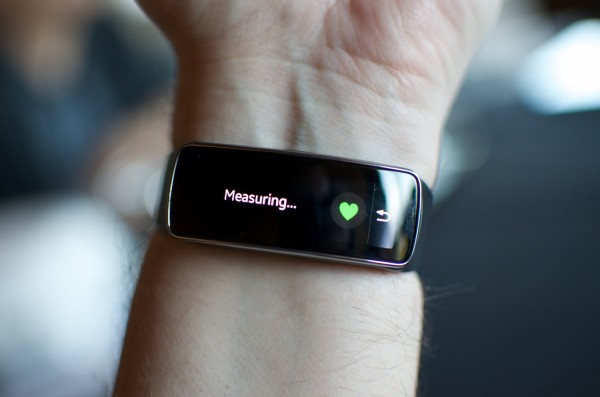Can Apple Watches Detect An Irregular Heartbeat?

Nurse fatigue can be an issue for patient safety. However, one day, sensors embedded in smartwatches or sewn into nursing uniforms may track alertness and sleepiness. Devices such as smartwatches developed for professionals could allow nurses to use voice commands to send updates and reminders to other medical practitioners. Even though we're not there yet, smartwatches may one day be as essential to nursing uniforms as comfortable scrubs. Current trends suggest that future isn't far away.
The rise of wearables
The rise of wearable technology has taken the world by storm, with many avid consumers tugging at the leash to be the first customers to purchase popular products like the Apple Watch. Many continue to laud the health benefits of such wearable technology, asserting that Apple Watches can help you maintain a healthy lifestyle while giving you a warning about potential diseases or illnesses you could suffer from.
One such claim that's been going around is that Apple Watches can detect an irregular heartbeat, a useful innovation that could save lives. A recent study cast doubt on the claim that wearable tech is capable of supplanting medical professionals, however, and there are plenty of reasons to believe that your Apple Watch isn't quite capable of detecting flaws in your health with total accuracy.
Stanford and Apple teamed up
The biggest reason that so many are claiming that wearable tech like the Apple Watch can keep you healthy is that Apple teamed up with Stanford to determine if their watch could detect and warn users about irregular heartbeats. In a press release, Stanford detailed the results of the study and claimed that the virtual study featured a whopping 400,000 enrolled participants, who were enabled to join the process simply by downloading an app. The study began in 2017, which is an important detail given that Apple Watches have since been released with new features, including a built-in ECG feature.
Only 0.5 percent of all participants received a notification, which was crucial given the concern that such devices could result in a torrent of notifications about even the smallest health risks. No tech company or researcher at a university wants to start a health panic by mistake. Ultimately, the study had a 34 percent confirmation rate, which indicates positive progress in the development of healthcare technology but doesn't give us enough information to fully believe that Apple Watches can yet save lives.
Professor Renato Lopes claimed that the confirmation rate was "not very high," according to the Wall Street Journal, which should be revealing if anyone attempts to claim that the effort was a boisterous success. It goes without saying that Apple is going to champion the results - after all, the company wants to sell as many watches as possible - but you should be cautious before believing that wearable tech has advanced to the point where it can be fully relied upon when your health is at stake.
So, what's missing?
The technology exists to make smartwatches a valuable asset in fields like medicine, where every moment may be precious. The issue is that this would require a lot of customization for each field that wishes to adopt the technology. That may not be cost-effective for manufacturers. Imagine, though, if it was. What if your uniform or wearable device could remind you of appointments and help medical professionals record observations and recommendations for each patient?
As consumer-oriented technologies advance, wearables in patient wristbands could help remind them to take assigned medications, eat nutritious meals and exercise more. However, privacy, safety and security concerns might hinder these idyllic applications.
Is wearable tech cost-effective?
Another ongoing concern surrounding the rise of wearable tech is whether is cost-effective, especially since many Apple products are notoriously expensive. The previous model of the Apple Watch started at $279, for instance, whereas the latest version can start at $399. This has led many health professionals and tech experts alike to conclude that wearable technology is still far away from the point where it becomes an everyday facet of our healthcare system. Nonetheless, wearable tech is still promising as a nascent technology and could prove to be useful to many people given additional time.
Wearables are disrupting the healthcare industry by changing how doctors collect and interpret patient data, for instance, though this isn't always a good thing. Privacy concerns abound, with many believing that wearable tech is nothing more than a surveillance initiative to collect personal information on the wellbeing of everyday people. Others simply fear that giving regular folks access to too much data at once, especially on important topics like their health, can cause them to overreact and get scared when nothing is actually amiss. The average joe isn't a trained medical professional, after all, so if their smartwatch starts beeping with a health alert they could easily be misled and start to panic.
Nonetheless, the rise of wearable tech is a fascinating phenomenon that's unlikely to end anytime soon. Professional athletes are joining experiments where they add smart-sensors to their clothing while exercising or playing a sport, allowing healthcare professionals to collect new insights into their performance. Furthermore, the perfection of Apple Watches and similar wearables could produce more accurate and reliable results in just a few years.
Apple Watches can't quite detect an irregular heartbeat with total confidence, but they're a promising sign of the impressive wearable tech that's advancing further every year. Someday, nurses and other professionals might be able to slip on uniforms equipped with wearable tech that helps make their jobs and lives easier.
May 14, 2019 04:51 PM EDT





